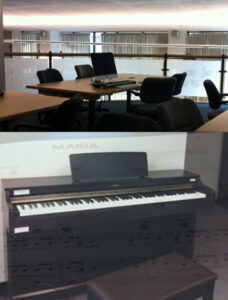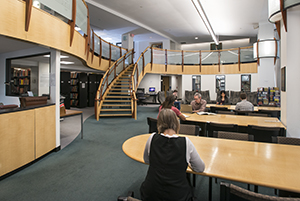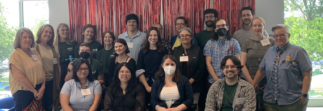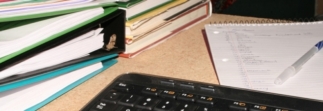By MIT Libraries’ student blogger, Pri Tembhekar
Hello everyone!
This week’s post is about one of my favorite places to study–the Lewis Music Library. It is especially valuable for classical music aficionados but has resources for all to enjoy. I often visit the music library when I’m craving a quieter place to work but one that is not as oppressive or pungent as, say, the reading room in the student center. The upstairs study nook is good for more casual work. The large tables downstairs provide ample room to spread out your papers and get to business. Upstairs, there are two group study rooms that are ideal for team meetings. The group study rooms can also be used by one person, but they must relocate should a group need the space.
The music library also offers much more beyond a quiet, calm, and naturally lit study space. All that studying can cause considerable stress. From first-hand experience I know that playing music can relieve stress and encourage a happier perspective. If you’ve been meaning to get back to a musical instrument that you once loved, Lewis Library’s scores can help. With over 39,000 musical scores, there’s certainly something you can pick up to ease back into playing music. There are also pieces from 1880-1920 in the Inventions of Note collection that can be accessed online.

There are pianos on the 1st and 2nd floor as well as Macintosh computers with music software on both floors.
Once you are back into the swing of music, you might consider joining other musicians for an open mic afternoon. Full reign of the piano and a captive audience are up for grabs about once a month in the Lewis Music Library. The next open mic event is Friday April 4th from 12-1 pm in the music library. A full list of music library events, including professional performances, can be found here.
The music library also offers other handy resources to keep in mind. There is a scanner/copier and Macintosh computers on the second floor. These computers have music software that allows for editing and composition. This includes Sibelius7, Finale 2012, Reaper 4, and Logic Pro X. Listening devices for VHS, DVD, and CDs are also available and can be used in the group rooms to facilitate music study. Finally, the library specializes in in-depth research. There are starter guides available, as well as interesting finds such as the oral history collection, and online streaming.



